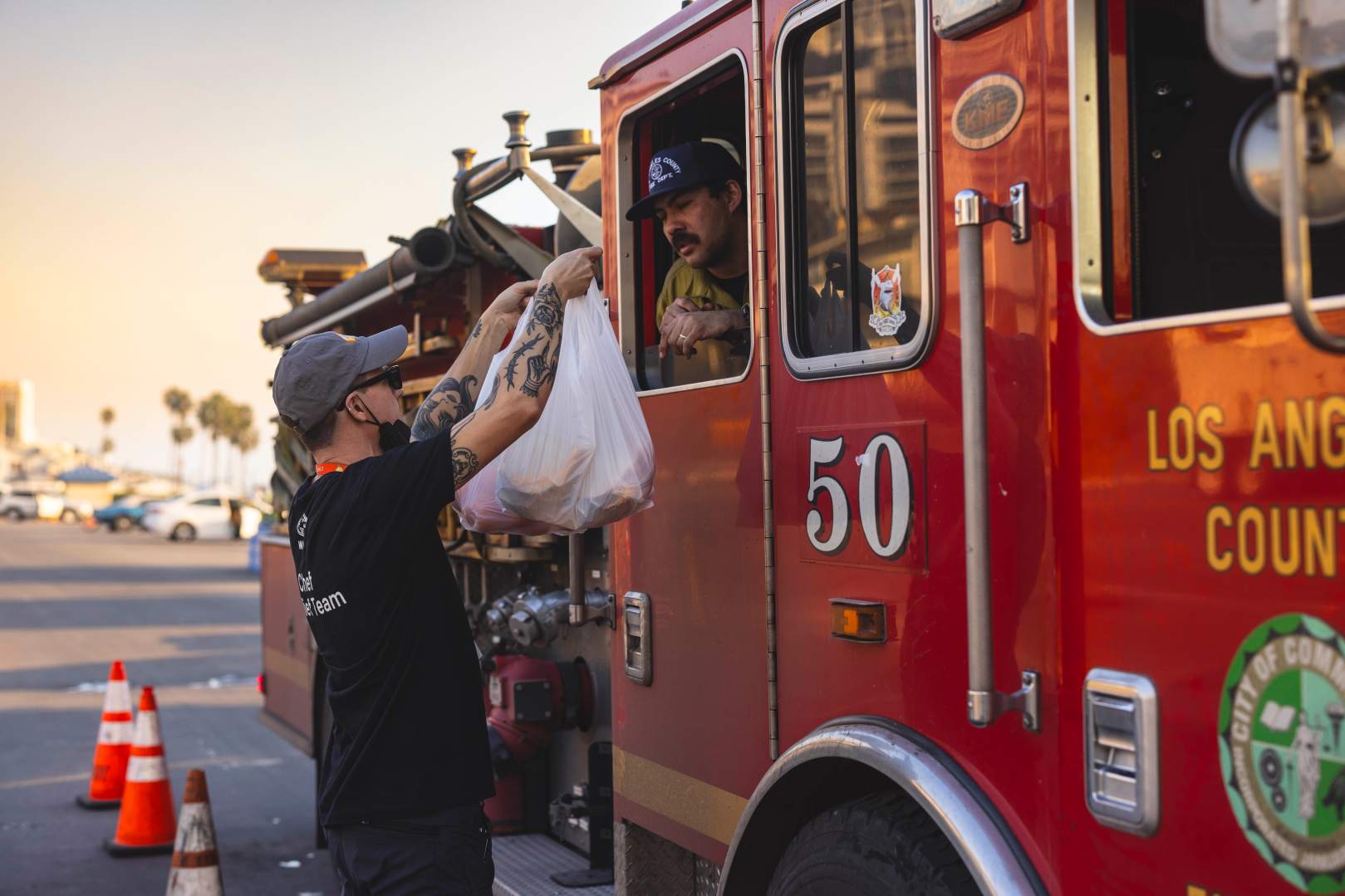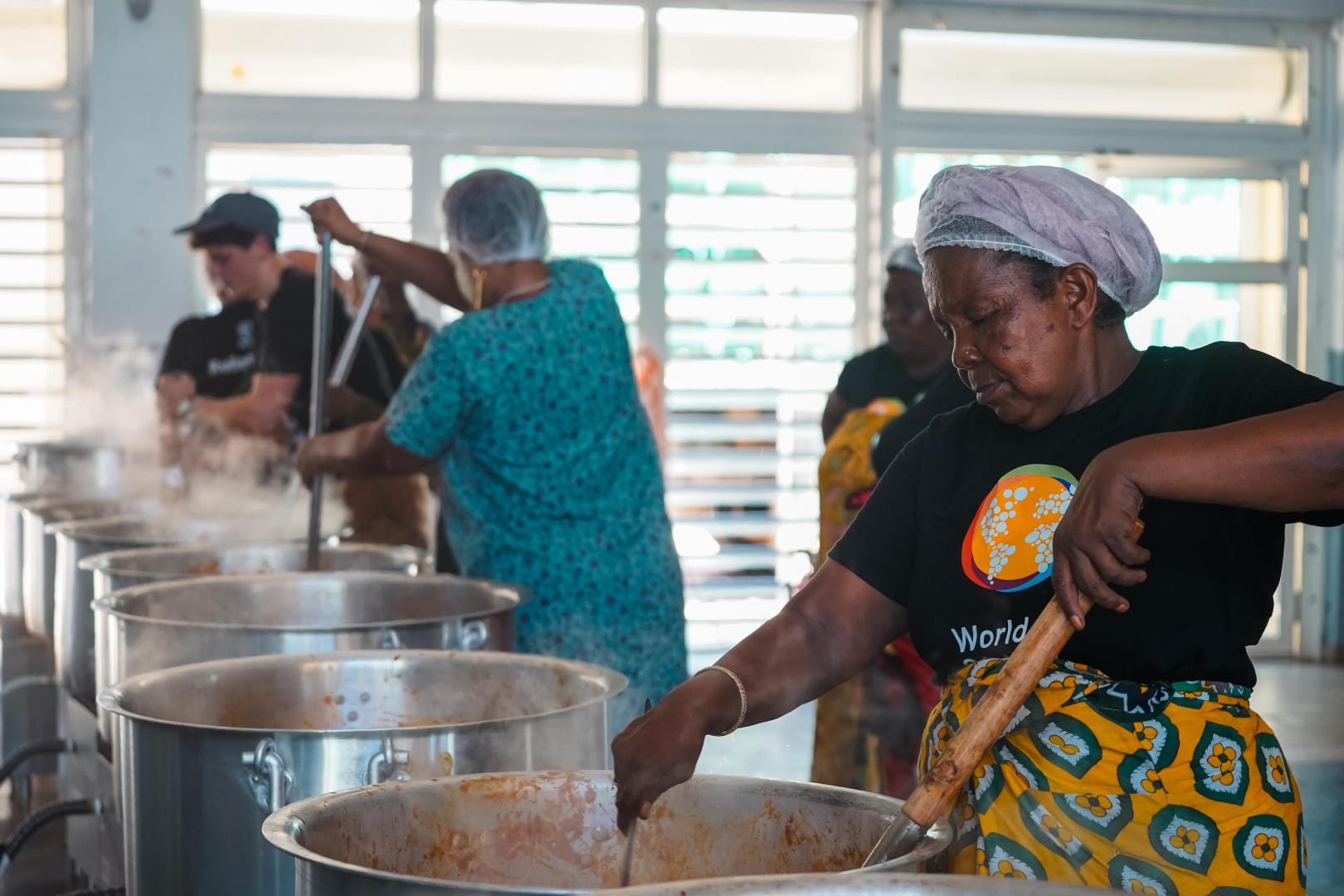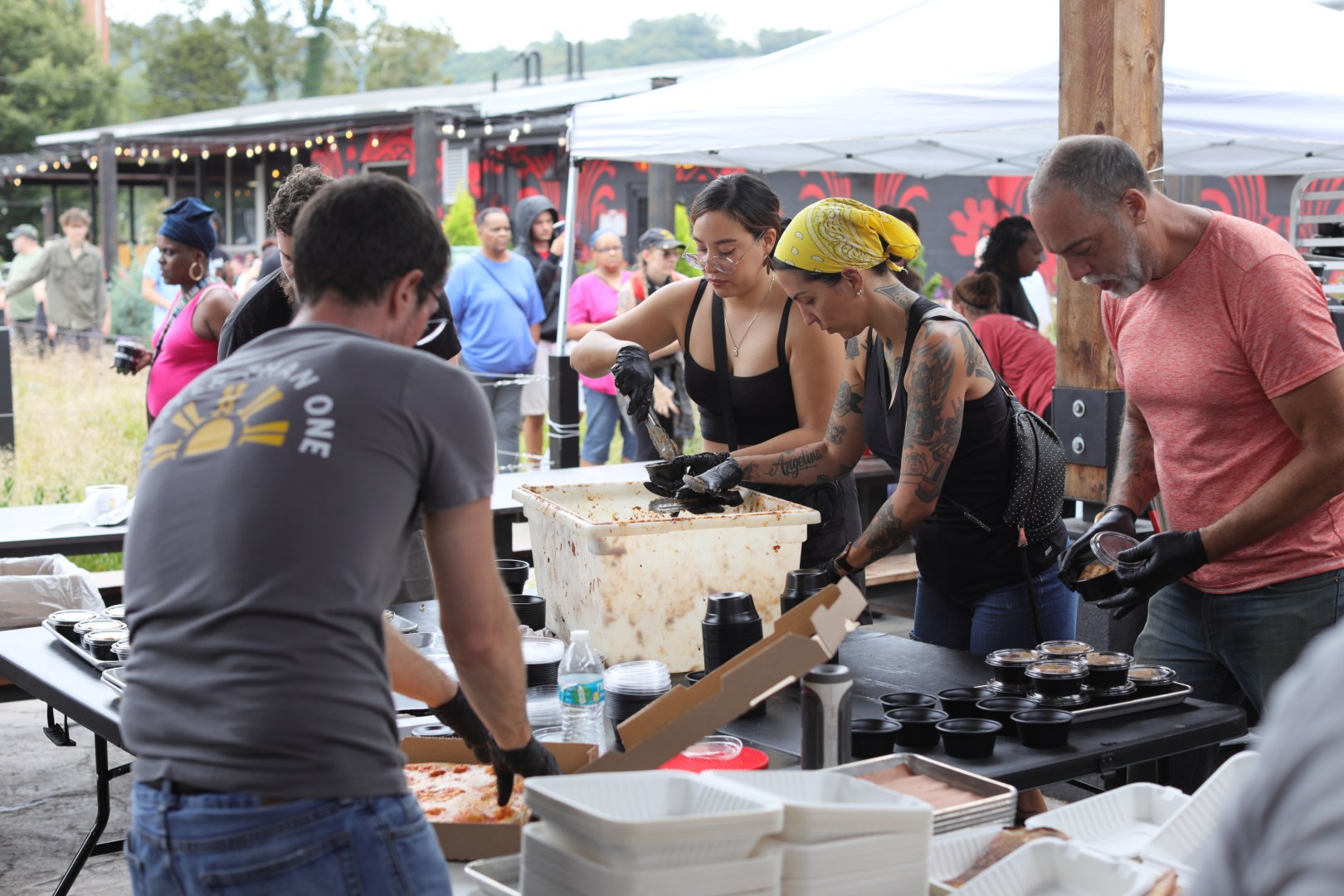WCK’s response to climate-related disasters
This is our commitment to supporting communities on the frontlines of the climate crisis.
This is a fight so hungry people can eat.
WCK has witnessed first-hand the crisis of climate-triggered hunger around the world. Hurricanes are developing earlier in the year and occurring more regularly and with increased intensity; devastating wildfires are now becoming a year-round threat; and warmer temperatures are fueling added moisture in the air, unleashing record rains and flooding around the world. This crisis is driving hundreds of thousands of migrants and refugees from their homes seeking safety, shelter, and food. Without access to fresh food in their communities, people are forced to move elsewhere.
Climate crisis-fueled extreme weather leads to most of the emergencies to which WCK responds. The increased frequency and ferocity of catastrophic weather events requires us to continually adapt our model for relief and humanitarian assistance. Since launching this initiative, WCK teams have used the support raised through our Climate Disaster Fund to provide meals following disasters including Category-5 Hurricane Ian in Florida, extreme rainfall and flooding in Pakistan, and a destructive series of wildfires in Spain.
As world leaders pursue long-term policies to address the climate crisis over several decades, WCK has committed to raising and spending $1 billion to immediately help families impacted by extreme weather. Launched in 2021, this initiative was initially seeded with $50 million for acute disaster relief—our commitment spans 10 years as we will continue to ensure vulnerable communities have access to nutritious food immediately following natural disasters.

How we respond
In 2022 alone, WCK responded to 30 climate-related crises in countries including Australia, Brazil, India, Madagascar, and the United States. WCK uses what we call the Urgency of Now to get on the ground immediately following a disaster—or even ahead of events like a hurricane, when possible—to secure a kitchen and begin cooking. Utilizing whatever resources are necessary, whether it be a truck, boat, plane, helicopter, or amphibious vehicle, WCK teams work with local community leaders to ensure families receive fresh, nourishing meals in the hours and days after a disaster. Support from our Climate Disaster Fund gives the WCK Relief Team the ability to solely focus on what is most important in an acute crisis: how can we get cooking to meet the needs of families who are hungry.
Los Angeles Wildfires
WCK’s Relief Team is in Southern California to support first responders and families impacted by wildfires in the Los Angeles area. Our teams have mobilized across the region to provide immediate relief. We are working with restaurant and food truck partners to provide comforting meals.
Cyclone Chido
Chido was the worst cyclone to hit Mayotte, the most densely populated and poorest French department, in 90 years. Many residents lost everything in the storm, including their homes. Our teams are cooking from our Field Kitchen. At the same time, we are working alongside dozens of restaurant partners and supporting community kitchens to ensure families impacted by the storm are receiving nourishing, comforting meals.
Hurricane Helene
WCK’s Relief Team is working in North Carolina to support families impacted by Hurricane Helene. Prepositioning ahead of the storm, we provided meals to families in Florida and Georgia immediately after it passed. Our team followed the storm’s path and is currently on the ground in North Carolina, having also supported families in Tenessee.
Join the effort
To meet the challenge of this moment, we need all hands on deck. Individuals, corporations, foundations — anyone can join our commitment.
WCK is building a community of monthly donors to help sustain our climate disaster work in the months and years to come. Any amount is a significant commitment to support communities on the frontlines of the climate crisis.
Explore More WCK Responses


